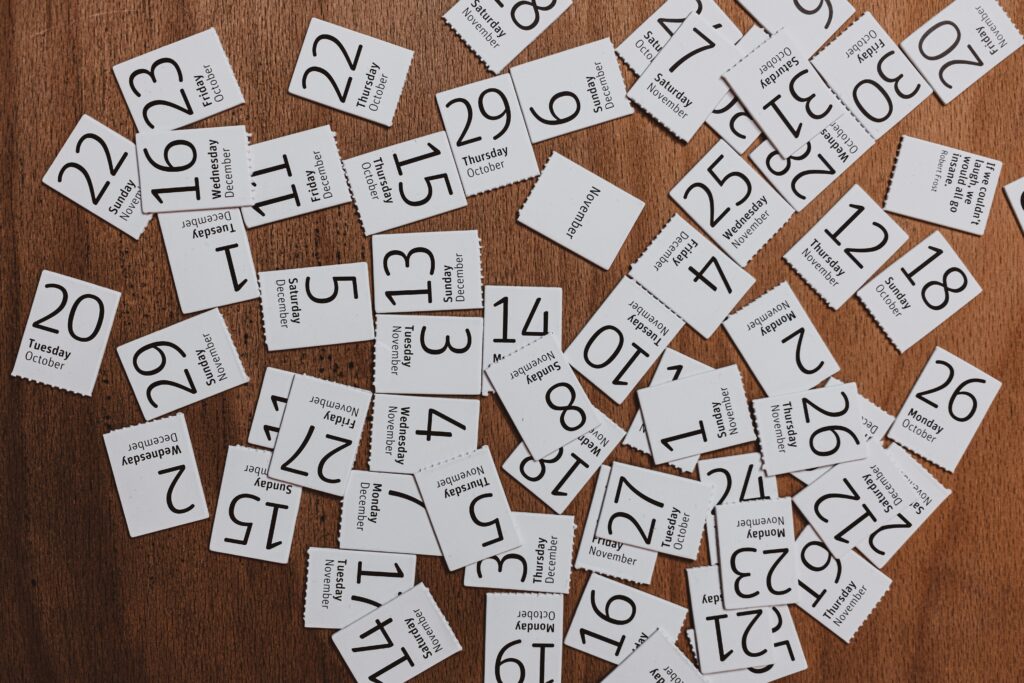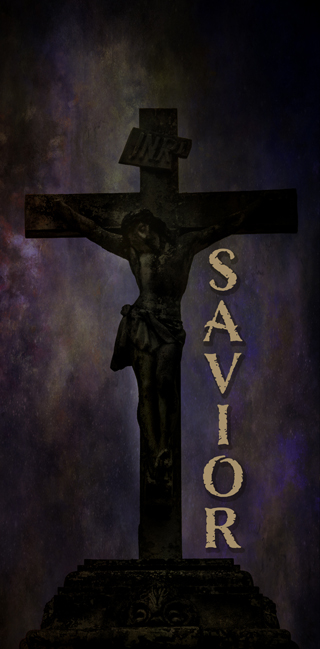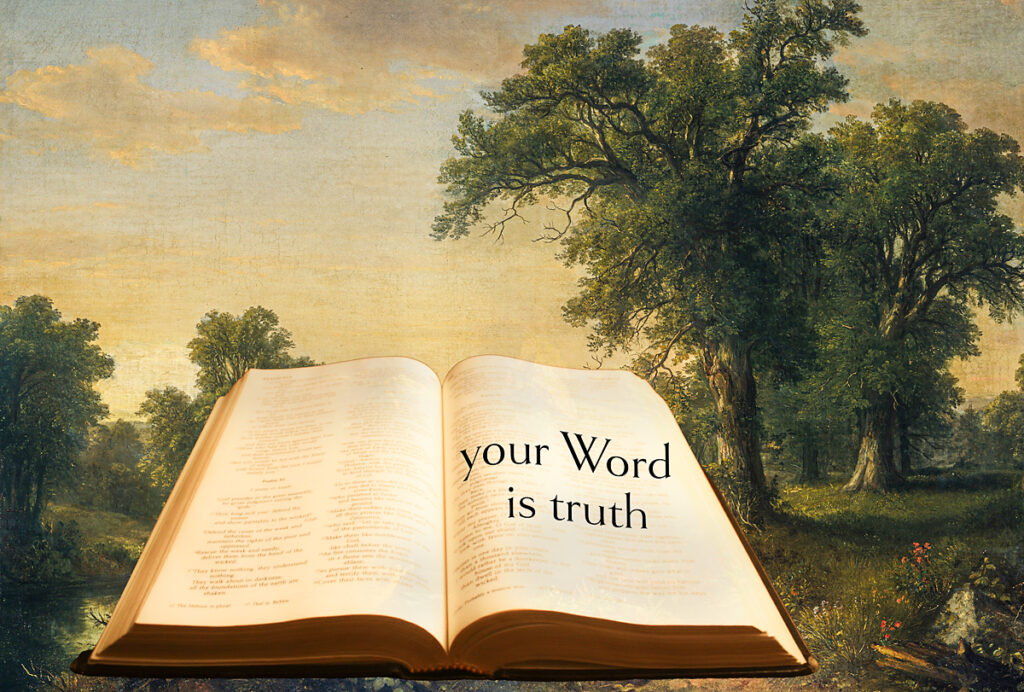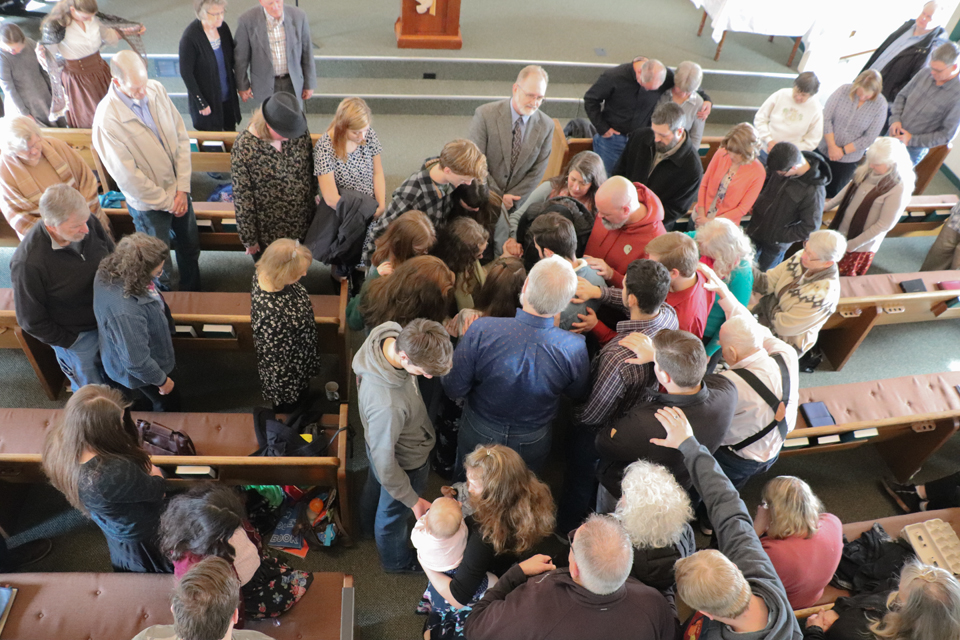
Although it’s been many years ago, I still remember the class day someone asked out loud, “What’s today’s date?” Another voice answered, “June 18th.” Husband and I stopped mid-penstroke. I gasped and he was open mouthed. We looked at each other incredulously. We had missed our 8th wedding anniversary and neither of us had realized it! We were so busy taking classes every day while living in a motel with three children six years old and under that we didn’t even know what day it was. Have you ever missed an important date or event?
Because we’re all juggling various responsibilities, we are dependent on reminders. We have phone alarms to remind us to wake up, make a certain phone call, meet a particular deadline, and pick up someone. We get text alerts to remind us of appointments. We have calendars to remind us of family birthdays, social engagements, etc. Without these in place, we forget important things.
 God, of course, is well aware that humans are forgetful. So he put in place some reminders to help us remember important things. In the Old Testament, he gave his special people a calendar of yearly celebrations. Three times a year every male was required to come to Jerusalem with women and children given grace to come as often as they could. The celebrations were to commemorate important things God had done for them in the past. It was a time of rest, renewing friendships, eating meals together, and worshiping together.
God, of course, is well aware that humans are forgetful. So he put in place some reminders to help us remember important things. In the Old Testament, he gave his special people a calendar of yearly celebrations. Three times a year every male was required to come to Jerusalem with women and children given grace to come as often as they could. The celebrations were to commemorate important things God had done for them in the past. It was a time of rest, renewing friendships, eating meals together, and worshiping together.
In the New Testament, God set in place one special commemoration to remind us what Jesus did for us. We are to share the Lord’s Supper, or Communion, to celebrate the sacrifice Jesus made to pay for our forgiveness. The Bible doesn’t specify how often we should remember Jesus’ death by eating the symbolic bread and wine. Some churches do it weekly, monthly, or quarterly. The important thing is that we honor the memory of Jesus’ sacrifice.
“He took some bread and gave thanks to God for it. Then he broke it in pieces and gave it to the disciples, saying, “This is my body, which is given for you. Do this in remembrance of me.” Luke 22:19
Although we may not think of this as a reminder, reading Scripture every day reminds us what God wants. God moved men of old to record stories that explain what God is like and what he wants us to do. We wouldn’t know about God except that he chose to reveal himself and helped men write it all down for a permanent record to be studied and treasured.
Ever since Moses first recorded God’s words for us, we have been able to read real-life stories of men, women, and children who had encounters with God. Later, David and the Prophets recorded their God encounters. We can know God’s values, his commands, because they are clearly recorded. There are wise sayings to help us navigate life, poems to give words to our feelings, historical records that give us a sense of the world and God’s interaction with it. Some prophecies shine into the future while others have already been fulfilled giving us confidence that God does what he promises. There are human interest stories modeling courage, endurance in the face of great odds, love stories, tales of war and intrigue, and openness regarding failures.
Just as God used prophets in the Old Testament to write down what he wanted us to know, in the New Testament he used men to write down the things Jesus and his followers did. They also wrote inspired advice on how to behave as believers in a community. And lastly, God used a man to give us a peek into the glories of the future of all believers from all ages and places.
“I have hidden your word in my heart,
that I might not sin against you.
Your word is a lamp to guide my feet
and a light for my path.” Psalm 119:11, 105
Here’s another thing that reminds us what is important: meeting together. When we meet with other believers to study, pray, and worship we experience God in a special way. Yes, we can study, pray, and worship individually, but there is a special blessing when we do it in community. We get out of our own headspace and see Scripture from the perspective of others, we pray for others, and we join voices or instruments with others in praise. We participate in the bigger whole, giving to and receiving from our brothers and sisters. We need them and they need us. The synergy of various giftings, personalities, and levels of maturity is how God intended us to grow.
“ For where two or three gather in my name, there am I with them.” Matthew 18:20
Jesus modeled meeting together by attending synagogue regularly, by observing the feasts, and by mentoring a group for three years. His followers continued the habit of meeting together for learning, celebrating the Lord’s Supper, encouraging each other, helping each other, praying for and with each other, and worshiping with music.
“And let us not neglect our meeting together, as some people do, but encourage one another, especially now that the day of his return is drawing near.” Hebrews 10:25
So we know the reminders God has set in place. Now let’s consider the complex issue of human traditions. Every culture has traditions intended to remind us of that society’s values. And here we can run amuck. It’s good to remember our Savior’s birth at Christmas, but our present culture has warped Christmas to fit its own values- commercialism, entertainment, and over-indulgence. We have to make choices about how or if we celebrate the holiday—the same for Easter. We can certainly use these holidays for good, but it’s up to us to be creative and find the best ways. Many churches celebrate particular seasons such as Advent and Lent. These can be useful, but we have to remember that the New Testament doesn’t specify these seasons. Human tradition can have value, but the problem comes when it becomes a legalistic burden or is distorted by society. Deciding how we should participate requires wisdom and grace. In making our decisions about human traditions, we can keep in mind that Jesus promised his yoke is easy and his burden is light. We still have a yoke and a burden, a duty and a responsibility, but only what God places on us according to his kind understanding of what he has equipped us with. We do have the duty to read the Bible, but it’s a delight when we let God’s Spirit give us the curiosity and desire to learn. We do have the responsibility to meet with other believers, but it’s a joy when we let God give us an appreciation for other’s gifts of teaching, music, and encouragement.
“Then Jesus said, “Come to me, all of you who are weary and carry heavy burdens, and I will give you rest. Take my yoke upon you. Let me teach you, because I am humble and gentle at heart, and you will find rest for your souls. For my yoke is easy to bear, and the burden I give you is light.” Luke 11:28-30